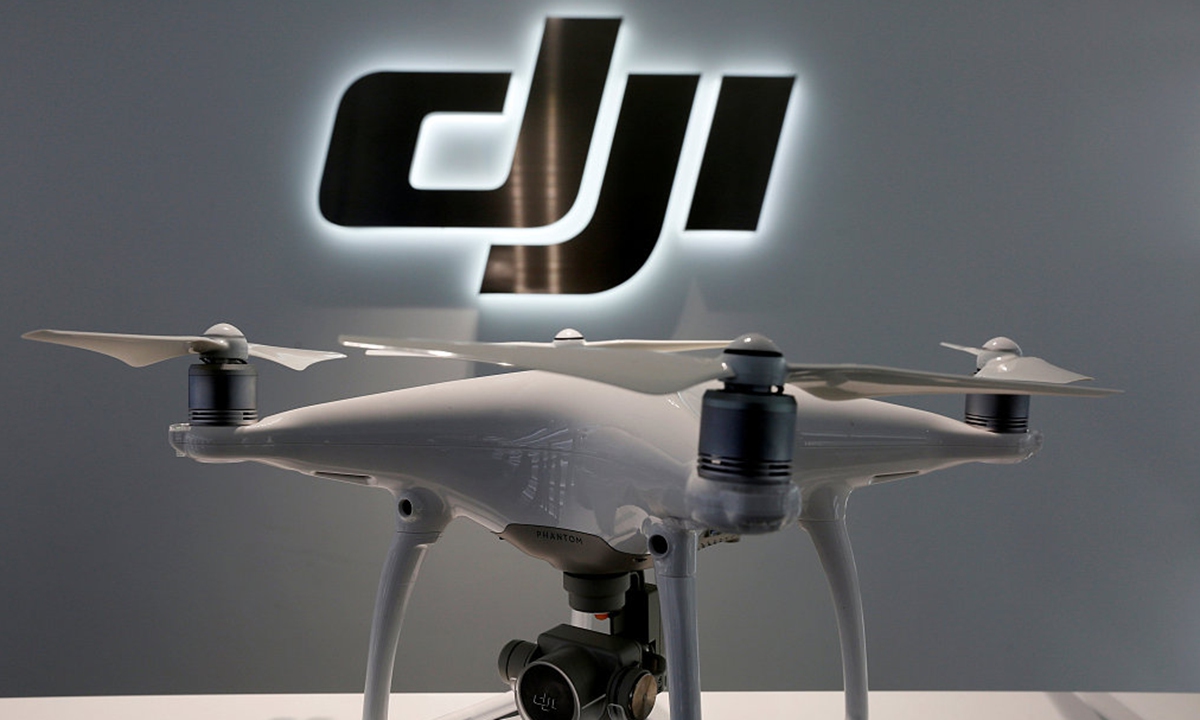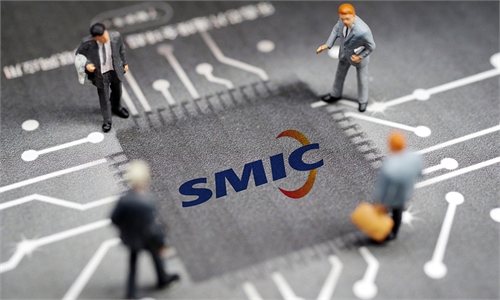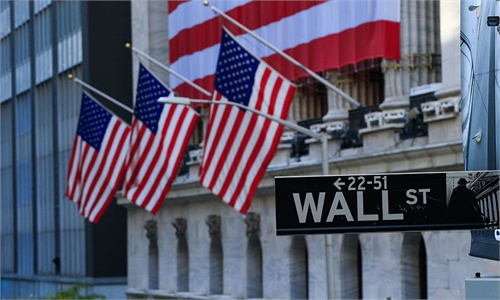SOURCE / INDUSTRIES
DJI could incur chip shortage after being added to US 'entity list'

Photo:VCG
The Bureau of Industry and Security (BIS) of the U.S. Department of Commerce on Friday put 77 entities on its "entity list," most of which are Chinese companies, universities and individuals.
DJI currently acts as the global pacesetter in the drone field.
Drone Industry Insights, the world's leading drone market research organization, stated in a June report that the Chinese drone maker's share of the global commercial drone market settles at about 70 to 80 percent.
The agency also predicts that the global commercial drone market will reach $42.8 billion by 2025.
BIS said it added DJI to the list "for actions deemed contrary to the national security or foreign policy interest of the United States."
The "entity list" can be dated back to February 1997, which covers a host of businesses, research institutions, and individuals subject to license requirements for the export, re-export and transfer of certain items to the country.
Strained China-U.S. relations in recent years have put loads of Chinese tech companies from the likes of Huawei and Hikvision on the blacklist.
China has urged the U.S. to stop the unjustified crackdown on Chinese enterprises, said Wang Wenbin, spokesperson for the Chinese Foreign Ministry, at a Friday press briefing.
"It seriously interferes with the regular scientific and technological exchanges and trade between the two countries, and will cause damage to global production, supply and value chains," said Wang.
Homegrown drones rely heavily on U.S. chips and the assessment of the impact is dependent on DJI's needs for chips containing U.S. technology, an industry insider told Chinese media outlet Caixin.
"These chips usually do not involve cutting-edge techniques and most of them use mature technology from 22 nanometers to 40 nanometers. If these chips cannot be sold to DJI as required by the 'entity list,' DJI could be stranded in big trouble," said the insider to Caixin.
DJI's layout in the North American market may also be further affected. Drone Industry Insights said in October 2019 that DJI's commercial drone share in the U.S. market was as high as 76.8 percent, and the second-ranked Intel only occupied 3.7 percent.
This is not the first time DJI has dealt with the horns of a dilemma.
In 2015, the U.S. Department of Homeland Security reported that Chinese made drones may bring back sensitive information to its manufacturers, and alleged that Chinese government agencies could access or use this data.
The U.S. Department of Justice went on record as saying in October that no organization is allowed to use its funds for any unmanned aircraft manufactured by "any entity that is subject to or vulnerable to extrajudicial direction from a foreign government," including DJI.


